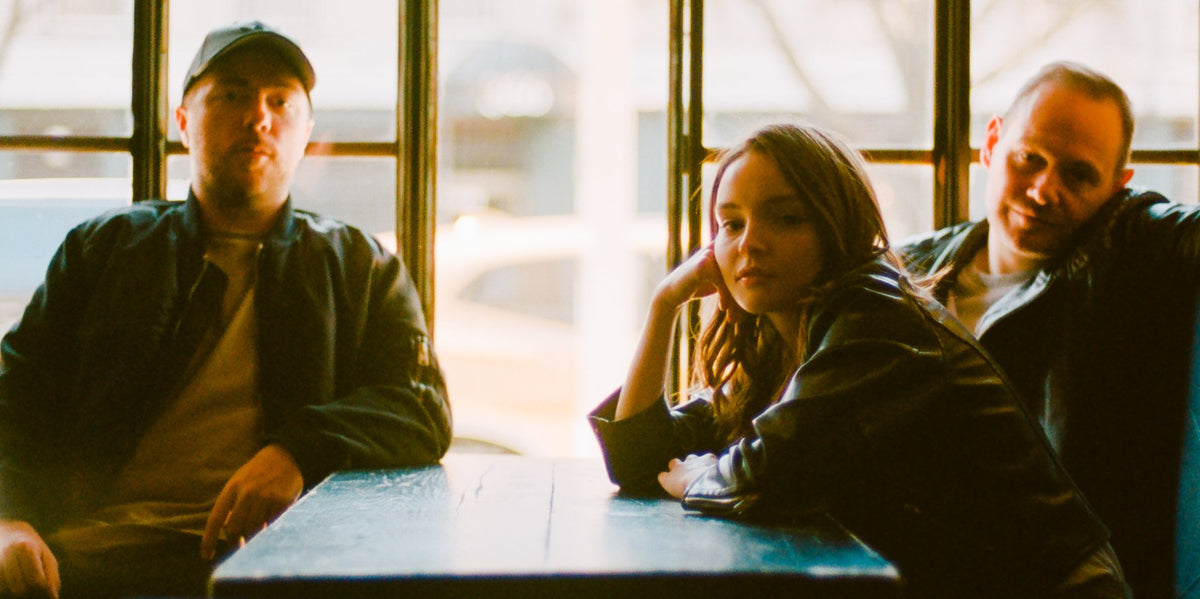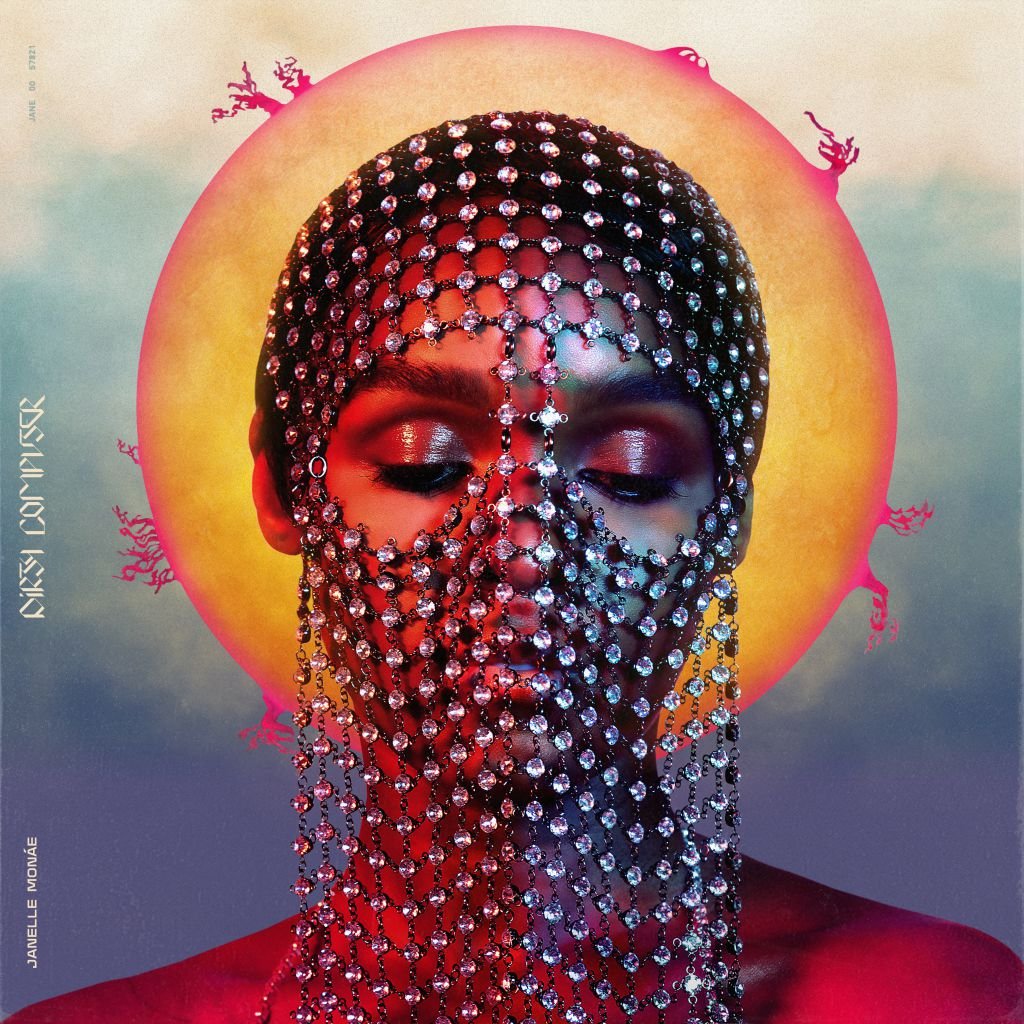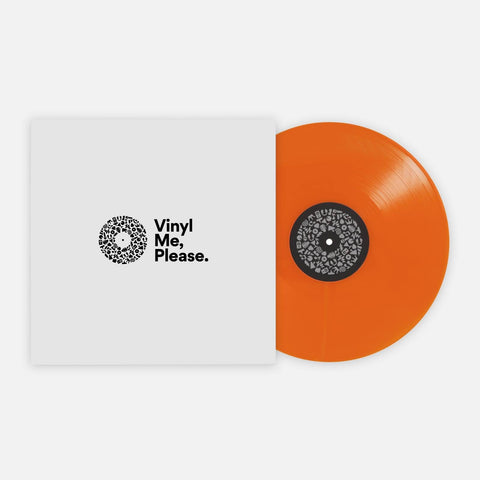Every week, we tell you about an album we think you need to spend time with. This week's album is The Future and the Past, the new album from Natalie Prass.
We had Natalie Prass pegged wrong from the jump. Given her background cutting her teeth on Music Row, playing keys on tour with Jenny Lewis, and her eponymous debut — which held threads of astral folk even at its most pomp and plucky — it was easy to misinterpret Prass as a blue-eyed soul singer, albeit one who sounded like she was fronting a virtuoistic marching band. But Prass has given us repeated clues that her influences are not confined to the likes of Dusty Springfield or Van Morrison, but instead bold, boundary-pushing pop stars. On her 2015 live EP Side By Side, Prass placed a swirling take on Anita Baker’s “Caught Up In The Rapture” alongside a rippling rendition of Grimes’ “REALiTI.” Dig a little deeper and you’ll find my favorite Prass cover to date, a perfectly executed interpretation of Janet Jackson’s immortal “Any Time, Any Place.”
The Future And The Past, Prass’ new LP out this week, reminds me of that Janet cover. Rather than continue to bring her idols’ work closer to the sound she’s become known for, Prass is bringing her sound closer to those idols. The record opens with a warbling funk squelch and whooshing doo-wops in time with disco guitar flicks that adorn the stage before the singer sashays in with a ’70s diva flair. “Oh My,” that startling, sparkling intro track, is her take on Marvin Gaye’s “What’s Going On” by way of Donna Summers’ “Hot Stuff” — an exasperated crooner confused and dissatisfied by society finding refuge in sonic tapestries of massaging grooves and basslines that lounge at the side like grapevines.
Although a novel adaptation of the vintage baroque-pop of her previous album, this new style is still borne of the same tools and sensibilities. The Future And The Past, like its predecessor, was also recorded at Spacebomb Studios with Prass’ long-time collaborator Matthew E. White, and the namesake house band is back, dressing her pristine compositions with textural flavor. It’s just that this time they’ve adapted to the songwriter’s more contemporary muses. In turn, she uses her gliding voice to make every pocket of instrumentation pop.
Prass smears her harmonies across the album wide and pure like thick-bristled brushstrokes, and lets her ballads simmer with both booming foregrounds and a fluid, freewheeling undercurrent like the most luxuriant cuts from Jackson’s Janet-era. “The Fire” — complete with a preceding schmaltzy interlude that screams of the unnecessary opulence of early ’90s R&B intros — takes cues from Jill Scott and Mary J. Blige’s warm sense of pacing to craft a road-weary ballad unlike anything she’s released before. The drums are placed loud in the mix, the low-end is overfilled and almost topples over with every beat, and Prass’ voice murmurs just on top of the surface before heaving forward for a herculean chorus.
Elsewhere, she’s channelling the previous decade’s Control and Rhythm Nation 1814, utilizing similar rubber band breakbeats and rhymically sputtering delivery. She places adjacent relaxed verses with burbling hooks on the dynamic “Never Too Late,” which feels like a long-lost canonical cut from your local record store’s used CD bin. Meanwhile, “Ain’t Nobody” makes use of new jack swing fluid mechanics, easing in and out of applied tension to its arpeggiated components. Best of all is “Lost,” her version of the Side B slow songs from those formative influences that is so striking it doesn’t feel tethered to any era so much as it rings instantly timeless.
Those moments of ’80s-indebted soul make up the bulk of the tracklist, but she occasionally leans back into the dizzying orchestral flair that she originally built her name on, although this time broadening the scope of what that entails. The six-minute grandeur of “Ship Go Down” could pass for My Morning Jacket, Prass spreading her vocals out between soft whispers and distorted wails like Jim James across a landscape of towering pianos and laser beam guitars. The twinkling “Far From You,” on the other hand, is a delicate detente between distant lovers with cooing violins that reverberate like birdsong.
“Far From You” is the closest descendant of Natalie Prass, evoking a wistful heartbreak with its resigned sobriety. It’s the only one of its kind on the entirety of The Future & The Past, which adopts a far more brazenly fluttering worldview. The album cycle began in earnest with the streamer-filled playground romp of a video for “Short Court Style,” a song euphorically endowed to its belief in romance, picking up the sentiment from where her previous album closer and emotional outlier “It Is You” left off, but doing so with a breezy buoyancy rather than cinematic heft. The rest of The Future And The Past works in that same vein of lovestruck indulgence, a stark shift from the tales of insecurity, apathy and resentment that defined the heartpunched bops of her breakthrough.
The most affecting compositions are the ones where Prass weaponizes her new positivity toward the world around her. The album’s second single was a funk-dunked solidarity anthem about keeping “your sisters close,” seemingly recorded in a room packed with affirmatively enthused musicians backing Prass on the call-to-action chorus with grit in their voices as they spit out the motto: “we’re worldwide, world class.” That song is all scampering licks and stomping rhythms, but her message of resistance remains just as impactful when she dials it down.
“We’ll take you on, we can take you on,” goes the equally meditative as it is amplifying refrain of “Hot For The Mountain,” a lightly jazzy protest song. It’s riled up, but measured in its rush — drowning out the violence of its opponents with smooth, lavish strings that suitably carry the rousing function of infantry percussion. This is Prass’ revolutionary spirit: unabashed, but fighting fire with fireworks, reminding her army of their motivation as they carry on the battle. “Ain’t nobody can take this from our hands,” Prass roars over the flexing closing track, which spins the initial frustration from the opener into resolute audacity.
Because of the vast distance between when she wrote the music for her first album and its release (the record was delayed for some three years, partially due to producers White and Trey Pollard’s insistence on getting it perfect), those songs represented a Natalie Prass who wasn’t the same as the one we met in real time. As with many debuts, the audience was introduced to a composite of all the earlier versions of Prass that existed in those years prior.
Her sophomore album might have felt the same way, having been already written in the first half of 2016 before the events of the second half compelled her to start from scratch. The urgency in her revision lends the collection an immediacy with unbridled punch and fervor, a contrast from the measured emoting of narratives already contextualized within her personal history. Ironically, The Future And The Past feels like the moment we discover the Natalie Prass of the present: bursting at the seams, bathed in pastels and steady in the face of anyone who might stand in her way.
Pranav Trewn is a general enthusiast and enthusiastic generalist, as well as a music writer from California who splits his time between recording Run The Jewels covers with his best friend and striving to become a regular at his local sandwich shop.
Related Articles
Join the Club!
Join Now, Starting at $36Pages







